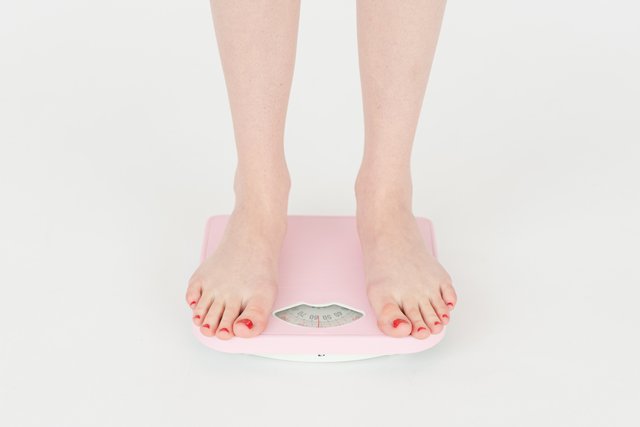At this critical juncture, we started working from home, away from college, and avoiding as many social interactions as we could. We are confined to our homes and must eat the food that has been in the refrigerator or pantry for some time.
Our sedentary lifestyle is characterized by higher odds of inactivity, excessive sitting, and eating, depression, anxiety, and stress. During the pandemic, many of us will put on weight and may continue to do so.
Permanent excess weight poses serious health concerns for type 2 diabetes, hypertension, heart attack, stroke, and other medical conditions.
It's a frequent misconception that staying in shape merely requires proper nutrition and exercise, but actually, keeping a healthy lifestyle requires more than just these two things.
It also requires the ability to maintain a happy mood, good mental health, and a healthy self-image.
Although there is a ton of information available on how to lead a healthy lifestyle, the following are some important considerations:
1. Drink More Water, Stay Hydrated, and Limit Sugared Beverages

The majority of us do not regularly consume enough water, despite the fact that it is necessary for healthy body function.
Water is essential for carrying out biological processes, getting rid of waste, and circulating nutrients and oxygen around our bodies.
We must constantly replenish the water in our bodies since we lose water through breathing, perspiration, urination, and bowel motions every day.
We all require different amounts of water, but generally speaking, an average adult needs two to three liters each day.
Urine, which should be white or pale yellow, is an excellent indicator of how much water you are consuming, and if it's yellow, you are becoming dehydrated.
2. Consume Healthy Meals and Limit Unhealthy Foods

Don't forget to eat breakfast and select a meal that is nutritious that contains more protein and fiber than fat, sugar, and calories.
Simply put, processed meals are bad for you.
Processed foods lose the majority of their nutritious content during production, and the additional preservatives are harmful to human health.
Due to the high salt content of these foods, high blood pressure and heart disease are caused.
In general, an item is more processed the more ingredients it lists on the label.
Vitamins and minerals, which are crucial to your health, can be found in all fruits and vegetables. To maintain our health, it is advised that we eat five servings of fruits and vegetables each day.
3. Keep Healthy Snacks nearby

Your metabolism will benefit from frequent short meals, but the most important thing is to eat healthy foods.
Look for items like fruit, salad, or freshly squeezed juices that are not from concentrate when choosing snacks throughout the day.
Look for items like fruit, salad, or freshly squeezed juices that are not from concentrate when choosing snacks throughout the day. These are healthy and won't cause a sugar high or low.
4. Supplement With Multivitamins

Taking a daily multivitamin supplement is a smart option to ensure you have adequate quantities of nutrients, especially if you don't have a wide selection of fruits and veggies at home.
The importance of many micronutrients is crucial for your immune system, like vitamins A, B6, B12, C, D, and E, zinc, iron, copper, selenium, and magnesium.
There is, however, no clear evidence at this time that taking any supplements and adding to your diet will aid in warding off the infection or speed healing. High vitamin dosages can occasionally be harmful to your health.
5. Weight Monitoring and Measurement

You can see what you're gaining and/or what you're losing by monitoring your body weight on a daily or weekly basis.
6. Regular Exercise and Physical Activity

Exercise every day for 30 minutes, not just a few times a week.
You can potentially lengthen your life and reduce your risk of disease by engaging in any form of physical activity for 30 minutes each day.
7. Reduce Your Screen and Sitting Time

You cannot become immune to your idle time through exercise.
Even those who engage in regular exercise may be more susceptible to diabetes, heart disease, and stroke if they spend a lot of time hunched over a computer.
Practically speaking, you might think about taking breaks from sedentary time by doing something active like walking around the office or room a few times each day.
8. Get Enough Sleep

When you don't get enough sleep, you usually eat more unhealthy food.
Sleep duration and quality have a significant impact on your immune system.
Getting seven to eight hours of sleep per night will help you maintain a healthy immune system.
9. Keep Negative People Away From Your Life

A healthy outlook on life is essential.
Negativity doesn't belong in your life. Simply let a person or friend leave if you believe they are negative.
10. Avoid Self Negativity

Negativity from you is not necessary either.
Let go of all unfavorable thoughts from your mind.
By maintaining a positive outlook, you can avoid an unhealthy reliance on food to make you happy.
Overeating typically occurs when one is dissatisfied.
11 Avoid Alcohol and Maintain Sobriety

You are not immune to the coronavirus or any other infection if you drink alcohol.
Remember that alcohol has calories, which can add up quickly.
Moderation is key when using alcohol.
This is a one-time notice from SCHOOL OF MINNOWS, a free value added service on steem.
Getting started on steem can be super hard on these social platforms 😪 but luckily there is some communities that help support the little guy 😊, you might like school of minnows, we join forces with lots of other small accounts to help each other grow!
Finally a good curation trail that helps its users achieve rapid growth, its fun on a bun! check it out. https://plu.sh/altlan/
Downvoting a post can decrease pending rewards and make it less visible. Common reasons:
Submit